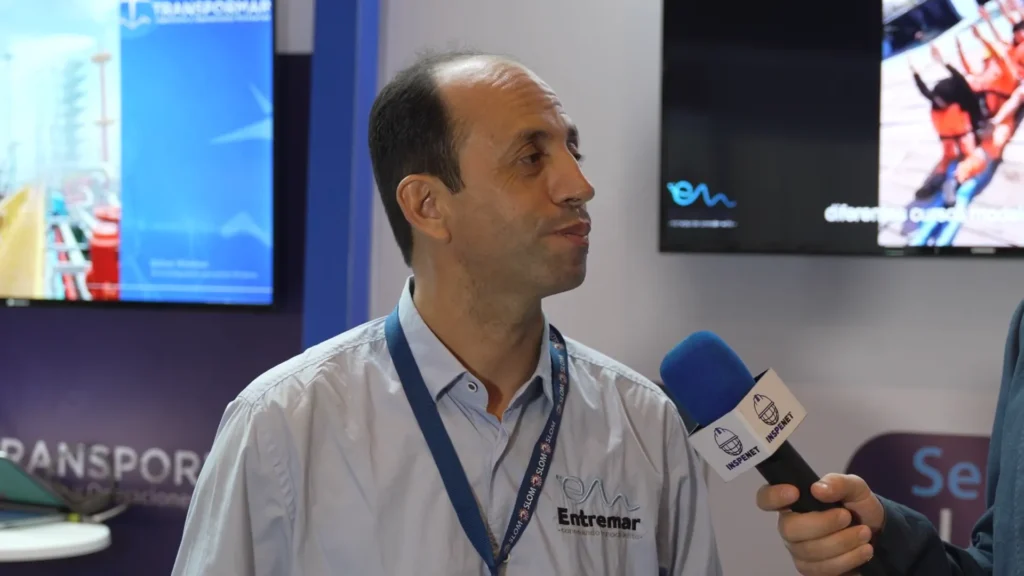During his participation in the SLOM 2025 event held in Panama, Jorge Casas, instructor at the Entremar Training Center, offered an in-depth look at the challenges and opportunities facing the port industry. With a track record focused on training human talent in safe operations, Casas emphasized that maritime training is a critical tool to minimize incidents and optimize processes.
One of the most relevant data presented by the instructor was that 80% of maritime incidents are related to human error. In his experience, this is due to the lack of training, protocols and standardized procedures within port operations. To address this problem, the entity focuses its programs on developing crucial competencies, both technical and human, that allow operations to be carried out with high safety standards.
According to Casas, training teams from the technical base to interpersonal skills is indispensable if critical failures are to be avoided in oil, container, fishing and other maritime segments.
Entremar has established itself as a key player in maritime training in Colombia and other regions. Its offer includes basic and advanced IMO courses, port logistics training, port mooring training and a "Loading Cargo Master" diploma course, focused on the safe operation between monobuoys, ships and terminals in the transfer of hydrocarbons.
This comprehensive approach allows its graduates to be better prepared to assume roles with high operational responsibility. Casas emphasized that many facilities without constant hydrocarbon operations turn to Entremar to train their personnel, which validates the trust they have gained in the sector.
On the other hand, Jorge Casas highlighted the role played by technological tools in today's training processes. The use of simulators and virtual reality scenarios makes it possible to replicate real conditions, analyze past failures and prepare talent for complex situations without putting the operation at risk.
These tools, combined with retrospective analysis software, provide more robust training that facilitates decision-making in high-pressure scenarios, so common in the maritime industry.

In addition to the technical aspects, Entremar attaches special importance to the development of soft skills. In Casas' words,
Entremar's educational approach seeks to correct this weakness, incorporating effective communication and mindfulness practices in its teaching processes, improving individual performance and collective coordination in critical operations.
One of Entremar's most convincing achievements has been the implementation of the Loading Cargo Master diploma program, which has trained more than 130 people in the last three years. Companies such as Ecopetrol, Ocensa, Chevron, Texaco and terminals such as CONTECAR and Sociedad Portuaria Regional Cartagena have relied on this program to prepare their personnel for safe and controlled operations.
Entremar's presence at events such as SLOM is part of its strategy to strengthen regional alliances, share experiences and standardize training according to the requirements of the International Maritime Organization (IMO) and the maritime authorities of each country.
In an industry where the margins for error are minimal, and the consequences can be significant, investing in maritime training is no longer optional, but an operational and strategic necessity. Entremar through an educational proposal based on technology, practical experience and human training, is contributing to raise the standards of the port sector in the region.
For more content about SLOM 2025, please visit our LinkedIn profile.
Source: Inspenet.